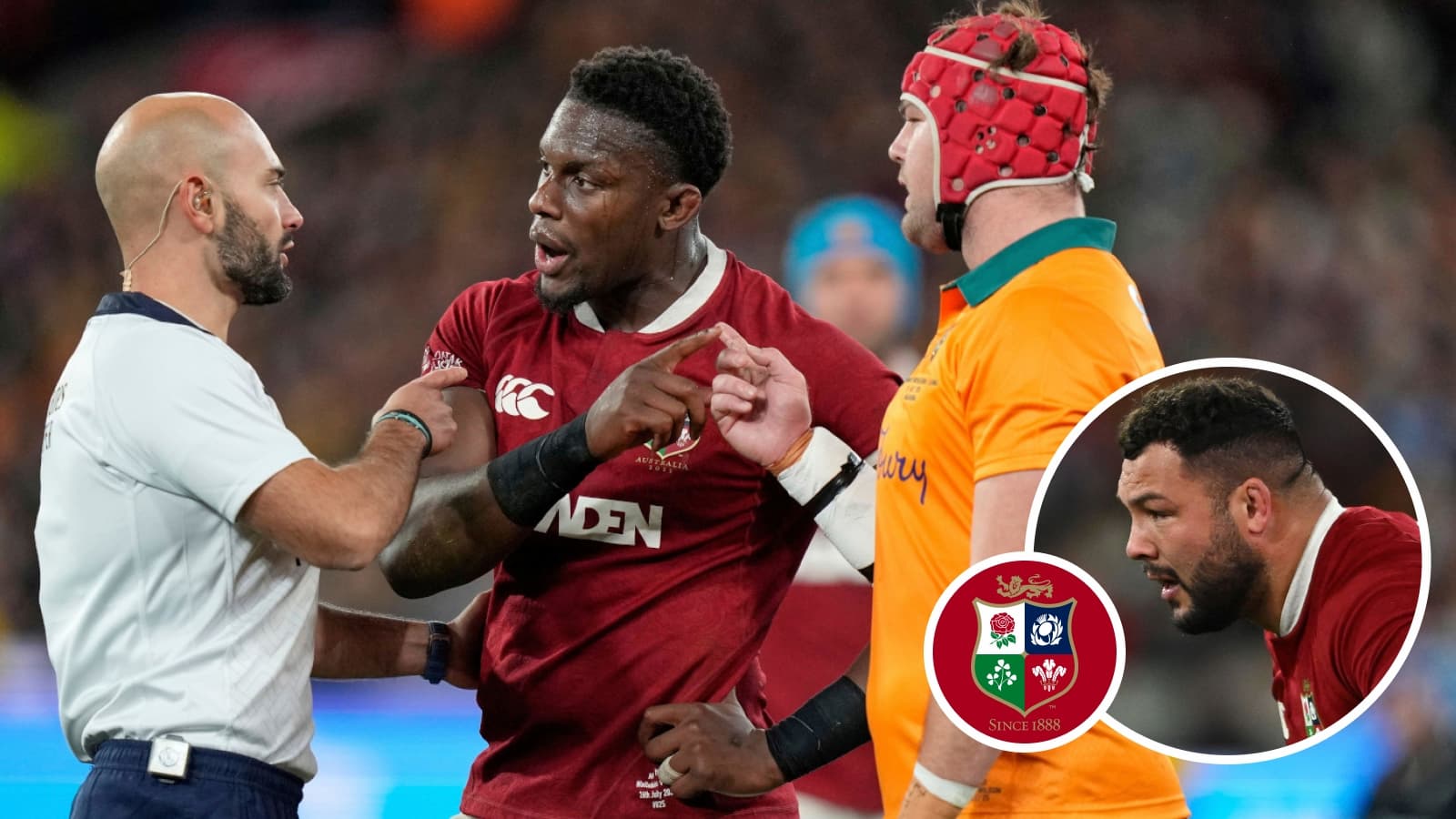This week we will mostly be concerning ourselves with the Lions’ finale, exemplary behaviour, less exemplary behaviour, and the real matchwinners for the tourists…
Rugby incidents
And there it was. Again. Just like Sam Cane’s red card in the World Cup Final, just like Romain Poite’s ‘offside deal’ in 2017, an entire game, nay, series, hinged on a refereeing decision. And a belting Test match becomes remembered only for one moment.
Did Jac Morgan wrap? Did he hit the head/neck area? Was he controlled? Off his feet? Did Carlo Tizzano take a bit of a dive? Arguments abound on all sides of all those questions. Rugby simply has so much that is open to interpretation, despite its enormous law book, that nobody will ever be proven to be right, least of all the referee and his officiating team, whom everybody loves finding to be wrong because they are such magnificently convenient scapegoats.
There is no clear and obvious solution to the problem of finding the correct shade of grey when it comes to series-defining decisions. Imagine if, for example, the penalty awarded – rather harshly – against Tadhg Furlong for a clearout to the head in the first Test had turned the series towards Australia in the same way. The Lions would have been fuming too.
You only remember the game-swinging decisions, but the reality is there are a dozen such decisions made in every single match. Just as it is hard not to think that Morgan did actually technically transgress, it is equally hard not to think that such a clearout, in a game of collisions and contests, happens around 30-odd times per match and might not even have been looked at had it not been in the lead-up to a series-clinching try.
Ex-ref boss’ ‘you can’t have it both ways’ argument after British and Irish Lions controversy
These are the rugby incidents that Ben O’Keeffe memorably referred to in a Wales v Scotland clash. Sometimes they go one way, sometimes they go the other, and the referee makes a call. The lawmakers keep trying to refine it, but it’s never going to be right.
The good
It’s reasonable to say that, just like climate change, there are still elements who would deny that brain injury is stalking our game, and needs a little more attention.
So when Ireland centre Garry Ringrose earlier this week opted to run down the highest honour in the game because he still didn’t quite feel right, it was a statement moment. It should give any player, young or old, a quick pause for thought. It should give any coach, watching a player who has just had a significant head knock, a quick mental nudge.
Nothing is worth brain injury. Not even a Lions Test cap.
And the bad
Maro Itoje is an excellent rugby player. He made 21 tackles in a captain’s shift on Saturday, showing plenty of mental resolve after a first half in which he also made a number of unforced errors, later sacking a key maul in minute 63 which had even the normally taciturn Andy Farrell cheering in the coaching box.
He’s been representing England since 2016, so we can safely assume he is at least nine.
Which is about the mental age presented to all after the first half bout of handbags as referee Andrea Piardi wisely opted to simply tell the teams to clam down and get on with it.
“But they started it!” was his plea. Really? Yes, Will Skelton was a little late in the play before – which was what had the teams simmering. It was clear for all to see and Mr. Piardi had a word with him, which was all that was needed.
If Itoje wanted to get Australia into trouble, he would have had a much better case of doing so had so many Lions players not charged into the fracas both when Skelton hit Furlong and when it erupted again a minute later. Like admonishing quibbling siblings in the back of a car, Mr. Piardi told everyone to be quiet and calm down. And like the moany sibling who is never wrong, Itoje insisted he was above admonishment because he didn’t start it. He didn’t. But what he also did not do is stop it. He was the first one there, fist at Skelton’s throat, escalating everything. In the altercation after Jack Conan’s unsuccessful lunge for the line, it was also Itoje there at Ollie Chessum’s side, giving it the full handbags.
In a rugby context, also fine. You don’t back down. But you don’t squeal either.
But “they started it”? Harry Wilson did better. “I’ll talk to my team,” was the response, quickly backed up by “don’t be a schoolkid,” to Itoje.
The inimitable Miles Harrison summed it up best: “Well that takes you back,” he said. “He started it, sir!”
Lions’ depth charges
Hugo Keenan has gained many plaudits for his moment of hot-stepping magic. Itoje for his captain’s shift. Dan Sheehan for his entire series performance.
But if you want the real difference between the teams, look no further than the Lions’ bench. When Skelton and Rob Valetini left the park, it spiked Australia’s main weapons, and barely any of the Wallabies’ replacements made a huge impact. By contrast, Ellis Genge shored the scrum, Blair Kinghorn injected pace, Morgan brought all-round energy and graft. The game began to tip when the changes were rung; it’ll be an important note ahead of Australia’s Rugby Championship campaign as well as the third Test.
READ MORE: Matt Williams slams ‘disrespectful’ Lions view as he urges tourists to ‘stop your arrogance’

